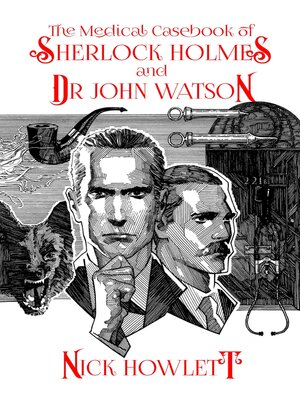
Sign up to save your library
With an OverDrive account, you can save your favorite libraries for at-a-glance information about availability. Find out more about OverDrive accounts.
Find this title in Libby, the library reading app by OverDrive.



Search for a digital library with this title
Title found at these libraries:
| Library Name | Distance |
|---|---|
| Loading... |
Arthur Conan Doyle was a GP before he became a writer. He uses his medical knowledge widely in the Sherlock Holmes stories. He bases the deductive skills of his hero detective on the diagnostic techniques a GP uses with a patient. He even gives Sherlock a GP sidekick. This all contributes to the enduring popularity of the Sherlock Holmes stories, over 130 years after the first story was published. An amazing 52 diseases feature in the Sherlock Holmes stories. This includes many that remain significant parts of a GP's workload today - diabetes, asthma, ischaemic heart disease, stroke. There are then other diseases that have largely died out in the UK due to advances in medical science - diphtheria, brain fever, rickets, tetanus. The Medical Casebook of Sherlock Holmes and Dr John Watson takes a definitive look at how Conan Doyle uses these 52 diseases in the stories. It also gives a historical perspective on the Victorian understanding of the diseases, using the textbooks Conan Doyle would very likely have had sitting on his consulting room shelves.







